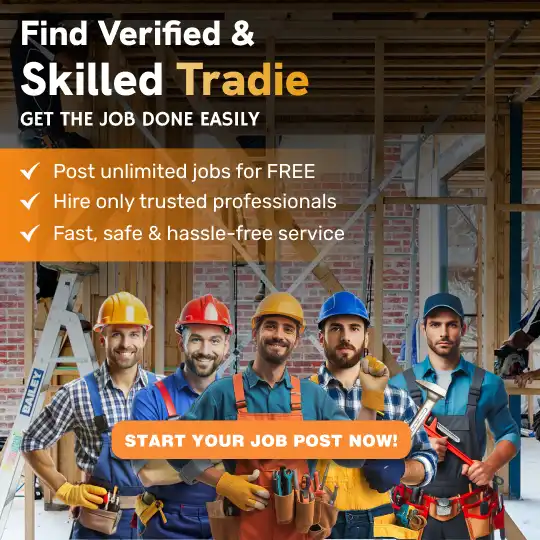The Realities of Fly-In Fly-Out Work in Construction

Fly-in Fly-out work (FIFO) has become a popular trend among construction workers who want to increase their earnings and have a unique job experience. In this, workers travel to a remote site to work and live in the company for the next couple of weeks until they come back home as per their roster.
While some workers are attracted by the construction job salary, living as a FIFO worker means that you will have to work a long shift, suffer loneliness, and make changes in your way of life. Before jumping in, it is essential to know the reality, advantages, and challenges, and how it impacts long-term career growth.
This guide clearly explains everything regarding FIFO construction work. Let’s have a closer look at it.
What is FIFO Work in Construction?
The FIFO work model in construction is an arrangement that is done for workers who have to travel to remote destinations for their work and come back home after a certain period.
The fly in fly out jobs meaning is simple. Workers undergo planned schedules, like they will be at the worksite for two weeks and have a week's leave, or other rotations set by the employer. Most of the time, people taking the on-site period are being provided with accommodation, meals, and transport. This setup allows companies to meet regional vs metro construction demand without requiring workers to permanently relocate.
It is quite appealing to workers, as it allows them to get higher wages. However, they also have to learn how to cope with the loneliness and the long hours, as well as the strict schedules.
Is Fly-in Fly-out Work Worth It? The Real Pros and Cons
Fly-in Fly-out work might be a good option for long-term construction jobs in Australia. The opportunities to make more money, to travel, and to have a well-structured roster attract many people. However, the job also carries with it some major challenges, which can have a negative effect on both the personal and long-term well-being of the worker.
Knowing the FIFO pros and cons for tradies will help workers make the right decision. Let’s understand it in detail.
1. Pros of FIFO Work
The advantages are as follows:
A. High Pay
One of the primary motivations for workers to take up FIFO jobs construction is that they will get more money in return. For instance, companies sometimes push up the salary to offset the inconvenience of working long hours, travelling, and living in remote areas.
B. Travel and Unique Experiences
FIFO tradie jobs Australia offer access to places workers might have never been to before. For those who enjoy new experiences, this is an added perk. Experiencing life in different regions while earning well can be both exciting and rewarding.
C. Accommodation and Meals Provided
Most of the time, a housing option and meals are provided. These on-site living conditions help cut down on one's living costs. The workers are thus able to save a larger portion of their income and, at the same time, focus more on the task without being concerned about daily expenses and commuting to work.
D. Skill Development and Career Growth
Usually, remote construction sites mean that there is involvement of a big project, the use of advanced equipment, and strict safety measures. This helps build essential construction skills for FIFO work, which can strengthen long-term career prospects.
2. Challenges of FIFO Work
The challenges are as mentioned below:
A. Long Hours and Fatigue
In the FIFO work construction industry, the workers are subjected to the grueling challenge of working their shifts for more than ten hours, and in some cases, twelve hours. The intensity and repetition can lead to both physical and mental exhaustion, requiring strong stamina and resilience.
B. Time Away from Family and Friends
Being away from home for several weeks is one of the main reasons that can strain relationships. The majority of the time, people who are away from home miss birthdays, school activities, or other events. Maintaining connections requires effort and planning during off periods.
C. Limited Social Life on Site
On-site living is mostly limited to interaction with co-workers. There are few or no options for recreation, and besides work, social interaction might be rare. That is why many people feel lonely and isolated, especially during long working rotations.
D. Mental Health Challenges
Extended separation from family, demanding work conditions, and isolation can contribute to mental health challenges for FIFO tradies, including stress and burnout. Workers must receive the necessary support from available systems and mental health resources.
Working on camp accommodation jobs brings financial rewards, skill-building, and potential career advancement. However, on the other hand, the offshore lifestyle demands, isolation, and long working hours should be seriously taken into account. Making this career choice depends largely on one's preparation, endurance, and a realistic view of the work-life balance.
What Are the Long-Term Career Realities of FIFO Work?
Let’s look at the long-term consideration of fly in fly out construction jobs in detail.
1. Career Growth
FIFO work exposes you to large projects and new skills. Over time, workers can move into supervisory, specialist, or project management roles. This experience helps with career advancement. However, being away from city offices may limit networking and access to other local opportunities.
2. Skills Development
Working on remote sites builds teamwork, problem-solving, and adaptability. These skills are useful for future roles. Still, constant rotations can make it harder to apply skills consistently, which may slow some workers’ professional growth.
3. Financial Planning
High wages and on-site living help workers save and invest. Many use FIFO income for property, family, or retirement planning. The challenge is that irregular schedules or fatigue can make managing finances tricky if not planned carefully.
4. Lifestyle and Health
Being away from family and friends for weeks at a time can strain relationships. Maintaining health, routines, and mental well-being is key to a sustainable career. Balancing work intensity with rest and personal time is essential to prevent burnout.
Trusted Tradie Network: Reliable Platform for FIFO Workers
The Trusted Tradie Network helps FIFO construction workers find secure jobs with verified employers. The platform ensures fair pay, safe work environments, and clear contracts.
FIFO workers benefit from access to high-paying projects and structured rosters, while employers gain skilled, reliable staff. By using this network, workers reduce stress about pay delays, unsafe conditions, or accommodation issues.
Trusted Tradie Network offers a practical solution for workers seeking stability, career growth, and confidence in the remote construction job market.
Conclusion
Working on rostered remote jobs offers financial rewards, career growth, and unique experiences. It allows workers to maintain a home base while earning higher wages on remote sites. At the same time, it involves long shifts, isolation, and personal sacrifices.
Understanding the pros, cons, and long-term realities is vital before choosing FIFO work. Planning for personal life, health, and skill development ensures a more sustainable career.
Platforms like Trusted Tradie Network make FIFO jobs safer and more rewarding, giving workers peace of mind and better growth opportunities. With preparation and resilience, FIFO work can be a fulfilling career choice.
FAQs
1. What is FIFO Work in Australia?
FIFO work means workers fly out to a remote job site, stay there for their rostered period, and then fly back home once their shift ends.
2. How FIFO Construction Jobs Work?
Workers usually follow a set roster, like two weeks on-site and one week off. Most jobs provide accommodation, meals, and transport, so you can focus on work without worrying about daily logistics.
3. Is FIFO work financially worth it?
Yes, it can be. Higher wages and included living costs make it possible to save a lot or invest while working on these contracts.
4. How much do you get paid in FIFO Australia?
Pay in FIFO Australia depends on the workers’ role and experience. On average, workers earn AUD 1,500 to 3,500 per week, with higher pay for specialized or supervisory jobs.
5. What are the biggest challenges of FIFO work?
It can be tough being away from family and friends. Long hours, fatigue, isolation, and stress are common challenges that need planning and care to manage.

